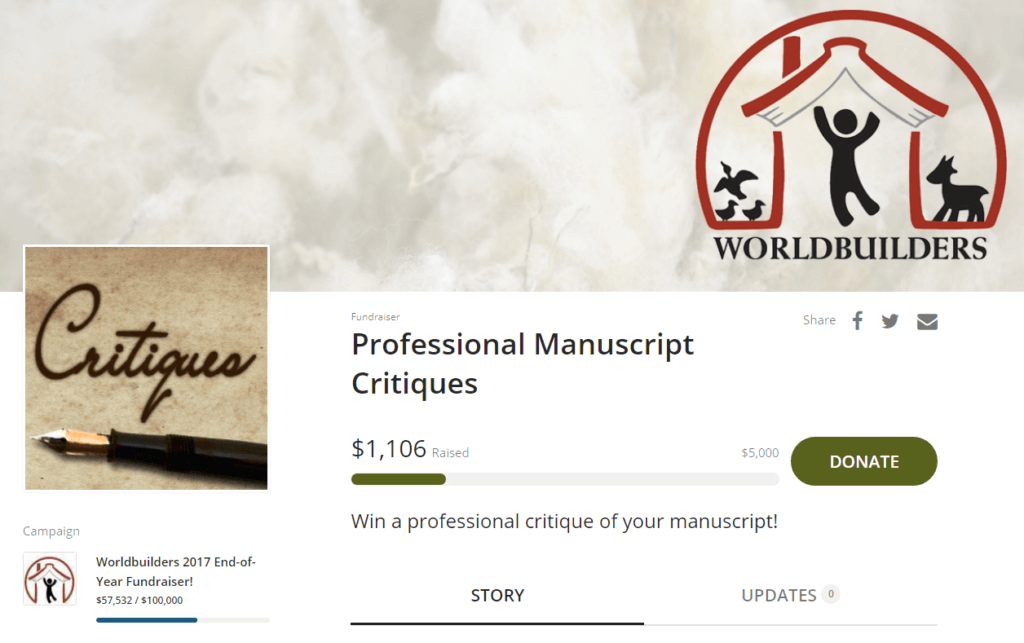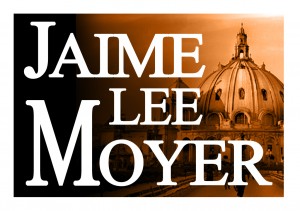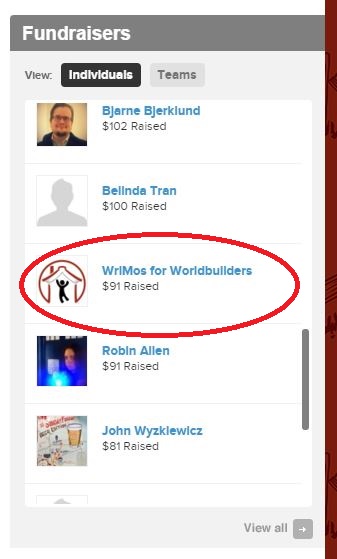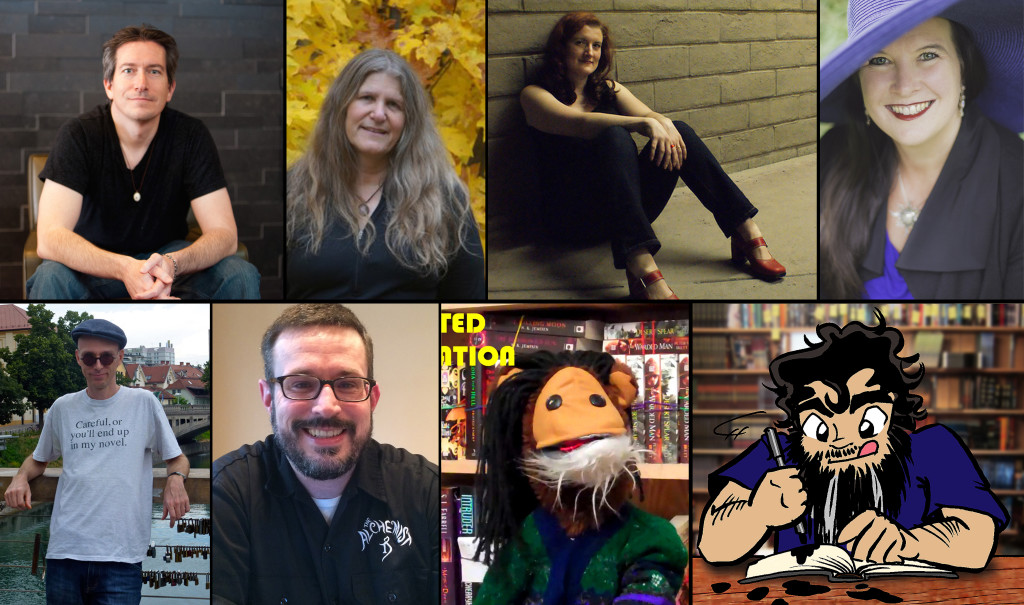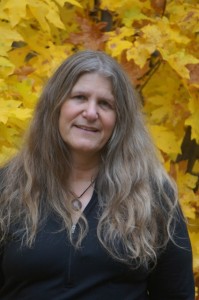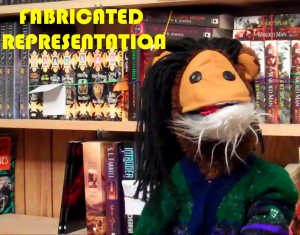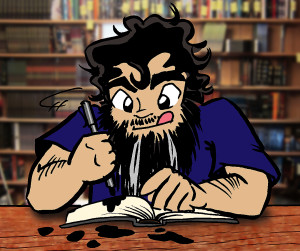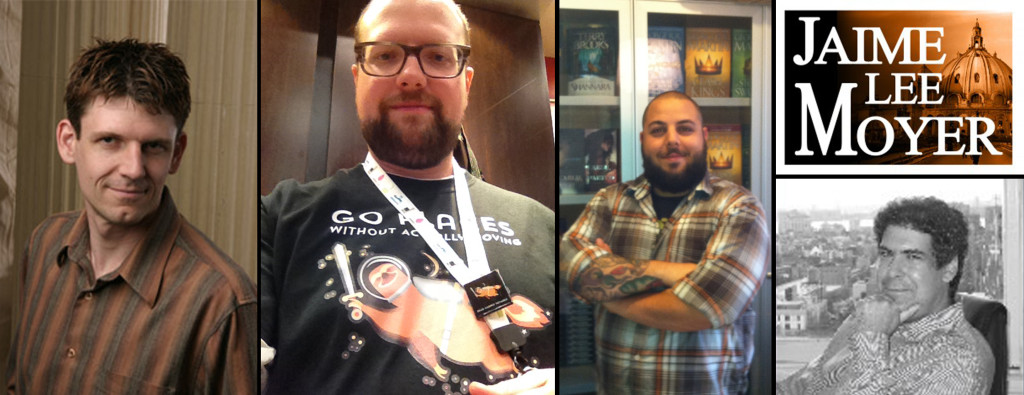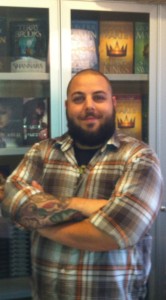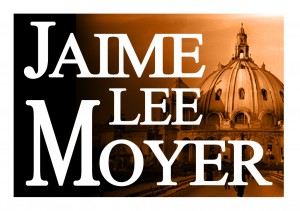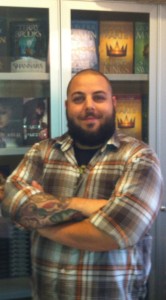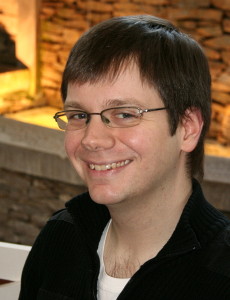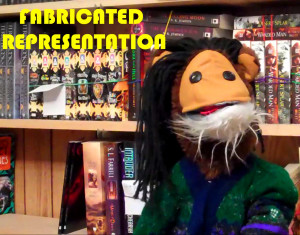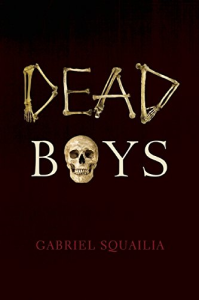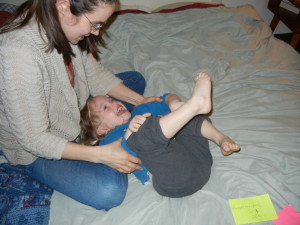Last night, I was going to post up a story about The Narrow Road Between Desires as a “review” over on goodreads. But logging in, I discovered there were already 200+ reviews on there.
Nobody’s actually read the book yet, obviously. It won’t be published until the 14th. Most of them were 1-star hate-reviews from people pissed it wasn’t Doors of Stone, which means the current rating for the book is around 2.1 stars.
Not gonna lie, took the wind out of my sails a bit. Sucks to have 200+ 1 star reviews before your book even comes out. It almost guarantees that it will never even hit 4-stars.
Same thing happened to Slow Regard, now that I think of it.

(Though to be fair, it’s a weird little book. Not everyone’s cup of tea.)
So instead, I decided to share this story here instead. It’s probably a better place for it to live long-terms anyway…
What story is that, Pat? I hear you say.
Or rather, I imagine hearing you say it. Or rather, I imagine not-hearing you think it to yourself, because I’m guessing not many of you are reading this blog right now and asking questions out-loud. Probably. (If you are, that’s fine. I don’t judge.)
This is, simply said, the story of how The Narrow Road Between Desires came to be.
But Pat! How did this story of how it came to be, come to be? I hear you not ask. Because even if you’re a bit of a weirdie who reads a blog and talks to himself, you wouldn’t say a sentence like that. (Okay, I’m judging a little.)
Well, this might surprise some of you, but sometimes I have trouble writing a thing. And when it came time to send Narrow Road off to get published, I had a hell of a hard time writing the author’s note.
Or rather, I had an easy time writing things I *thought* were the author’s note. I wrote an odd bit about art and mystery and Robert Frost. A funny bit about trying to find a title. I wrote about making art with Nate. An essay on Embrils. (You don’t know what those are yet.) A historical bit about the origin of the Aturan penance piece….

(You don’t know about those either, but we made some.)
For the most part, they were fine little bits of writing, but they weren’t… um… good. Or rather, they weren’t good as author’s notes.
All told, I wrote about 8,000 – 10,000 words, and only used 1500 of them.
This is one of the bits that felt like it was worth keeping. A a story about how a story came to be. Not something most folks would be interested in. But if you’re here, I’m guessing there’s a chance you might be into that sort of thing….
* * *
Once, years and miles away, I started writing a story.
It was 2009, an almost incomprehensibly long time ago. I’d only been published a couple years and was an odd mixture of dewy-eyed newbie and professional writer who’s had a taste of success. I was getting fanmail, going to conventions, and the paperback edition of NOTW had just hit the New York Times Bestseller list.
I was new enough that when I got an invitation to write a story for an anthology, it was a stunning event. Keep in mind that I’d been trying, and failing, to get published for about a decade. Getting *invited* to write a story for publication was just baffling. The opposite of rejection.
What’s more, this anthology was a Big Deal. Edited by Martin and Dozois. It was full of fancy authors I admired. What’s more, the theme was a good fit, and I had an idea for a story about Devi. I was so excited to go play with the cool kids….
Unfortunately, at that point I was also struggling and failing to finish The Wise Man’s Fear. I’d missed deadlines. Then more deadlines. People were pissed at me, and I was more pissed at myself. The delays were making trouble for my publisher, and I was terrified that I was ruining my career.
After agonizing for a while, I politely declined the invitation. I was still new to being a professional writer, and thought if I trimmed everything out of my life except Writing The Book, it would get done, like, ten times faster. (That doesn’t work, just in case you were wondering. Turns out you just get ten times sadder.)
I regretted the decision for years. Still do, honestly. As I’ll never know what I might have learned about Devi’s character. But years later, when the editors reached out again, my regret spurred me to accept the invitation.
The new anthology was titled Rogues, and my plan was to write a story about Auri. I assumed most of the other stories would feature more standard thieves and rascals. Con men. Artful Dodgers. Auri would make a cool counterpoint to that. Not a burglar or a rake. She would be more playful, sort of a trickster….
I worked on Auri’s story for months, and it went in every direction except what I’d planned. It was too long. Too strange. There were no characters, no action. Eventually I started to wonder if it was even *was* a story.
But eventually, two things became clear: Auri wasn’t a rogue, and what I was writing wasn’t going to be appropriate for the anthology. So I grit my teeth and abandoned the story.
A third thing was becoming clear to me, too. I had no idea how to write a short story. It should be easy. Name of the Wind was a quarter million words long. Wise Man’s Fear was over 400,000. A short story is nothing compared to that. Typically 3-5 thousand words. A lot of authors could write one in a couple days, give it a quick edit, and turn it over for publication in less than a week.
Me? I was months into the project and didn’t even have an idea, let alone a draft.
Checking my meticulously crafted project timeline, I found I was now at step 6b. (Have an existential crysis about whether or not I’m a *real* writer.)
Closely following that was step 6c. (Panic about missing your deadline, embarrassing yourself, and delaying the entire anthology.)
Luckily, I’m very clever, so I managed to do both of these steps simultaneously while I frantically rummaged through my files. I found the first 50-60 thousand words of a novel I’d started about Laniel Young-Again. I yanked out a piece of that, tried to mash it into something story-shaped, and sent it to the folks managing the anthology with all of charming aplomb of a sweaty drunk trying to use an expired credit card three minutes before the bar closes.
Luckily, the editors did me a great kindness by not letting me get away with that bullshit. They very gently and professionally pointed out what I’d sent in wasn’t very Rogue-ish. Plus there wasn’t much of a through line. Or a plot. Or an ending.
And… well… it wasn’t really a story now, was it?
They were right, of course. I withdrew the story and I was back to square one, later than ever.
Finally inspiration struck. What about Bast? He was a fan-favorite, fun to write, and rogue-ish down to his bones. And since I was struggling to write something short, I could pull inspiration from old faerie stories and folk tales…
After that, it was almost easy. True, it didn’t really turn out to be much like a faerie story. And yeah, it didn’t end up being short either, clocking in at over 20,000 words. But it held together. There were funny bits. Sad bits. A beginning and an end, and I managed to get the middle in between them. Best of all, I got to explore a part of my world nobody (including me) had ever seen before.
I wrote the entire thing in a month, from first word to final draft. For me, that’s wildly fast. I normally struggle with titles, but even that was easy. It was obviously, “The Lightning Tree.”
I submitted it, and breathed a sigh of relief, and hurried off to put out the other fires in my life that had sprung up in the meantime. Half a year later, the Anthology came out, and there I was, in print with the other cool kids, next to Neil Gaiman and Gillian Flynn.
Some folks liked my story. Some folks didn’t. Most didn’t seem to care one way or the other. But while there wasn’t any fanfaire, there was also a marked lack of hue and cry: nobody was declaiming me as a fraud and impostor. I’d hoped to feel a sense of accomplishment, but I mostly felt relief. In keeping with the theme of the anthology, I felt like I’d pulled off an elaborate con of my own. I’d fooled people into thinking I knew how to write a short story, when what I’d *really* done is bluff my way through with a novella-length vinette.
But, like any good con-man, I made my getaway quickly and quietly. Slipping into the night having learned my lesson, that short-story writing wasn’t for me…
* * *
…except I didn’t.
Auri’s strange story story kept tickling at me, so I finished it to get it out of my head. I it was unpublishable, but much to my surprise, my editor liked it. We got the fabulous Nate Taylor to illustrate it, and, feeling like I was performing some sort of strange experiment, we published it as The Slow Regard of Silent Things.
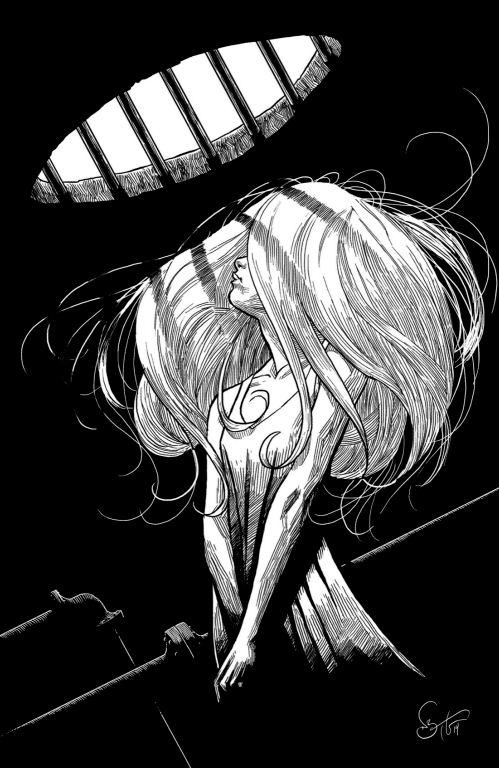
(The whole thing would have been worth it just for a one of Nate’s Illustrations.)
To my surprise, turns out there were people who *did* want to read a weird story where nobody talks and nothing happens. Some folks told me it was their favorite book I’d written.
Fast forward to a couple years ago. I was livestreaming when someone mentioned that Slow Regard was their favorite book *ever.* When I asked if they’d ever read “The Lightning Tree” they said they’d never even heard of it. Didn’t have the first clue it existed.
My wheels began to spin, and I bounced the idea off my publisher: What if I brushed up the text of The Lightning Tree, did some art with Nate, and we put out a book along the lines of Slow Regard for people who didn’t even know it existed?
Should be easy. I’d work with Nate on 8-12 illustrations, give the text a little spit-and-polish, fix some typos, maybe add a flourish or two. Easy peasy. Done in a month. Right?
Right?
I was wrong. Coming back to the story after almost 10 years, I saw a *lot* of missed opportunities. All in all, I re-wrote about half of the original story, then added about 15,000 words on top of that. I shifted and re-organized, added scenes, and spent *way* too much time fiddling with the words so things sounded just right.
It was the textual equivalent of starting to put up new wallpaper in a closet, only to have the project snowball until you’re putting in a skylight and have torn apart the walls to bring the wiring up to code.
As always, working with Nate Taylor was a delight. By which I mean he never choked me even once, even though the original plan for 10-12 pieces of art turned into over 45 illustrations…
As for the art itself? Well that, as they say, is another story….
* * *
See what I did there? I set things up for tomorrow’s blog, where I’ll be sharing ANOTHER attempt at an Author’s note which was an interview between Nate and I where we talk about our artistic process.
I’ll post that one up tomorrow (Monday) night. And then on Tuesday…
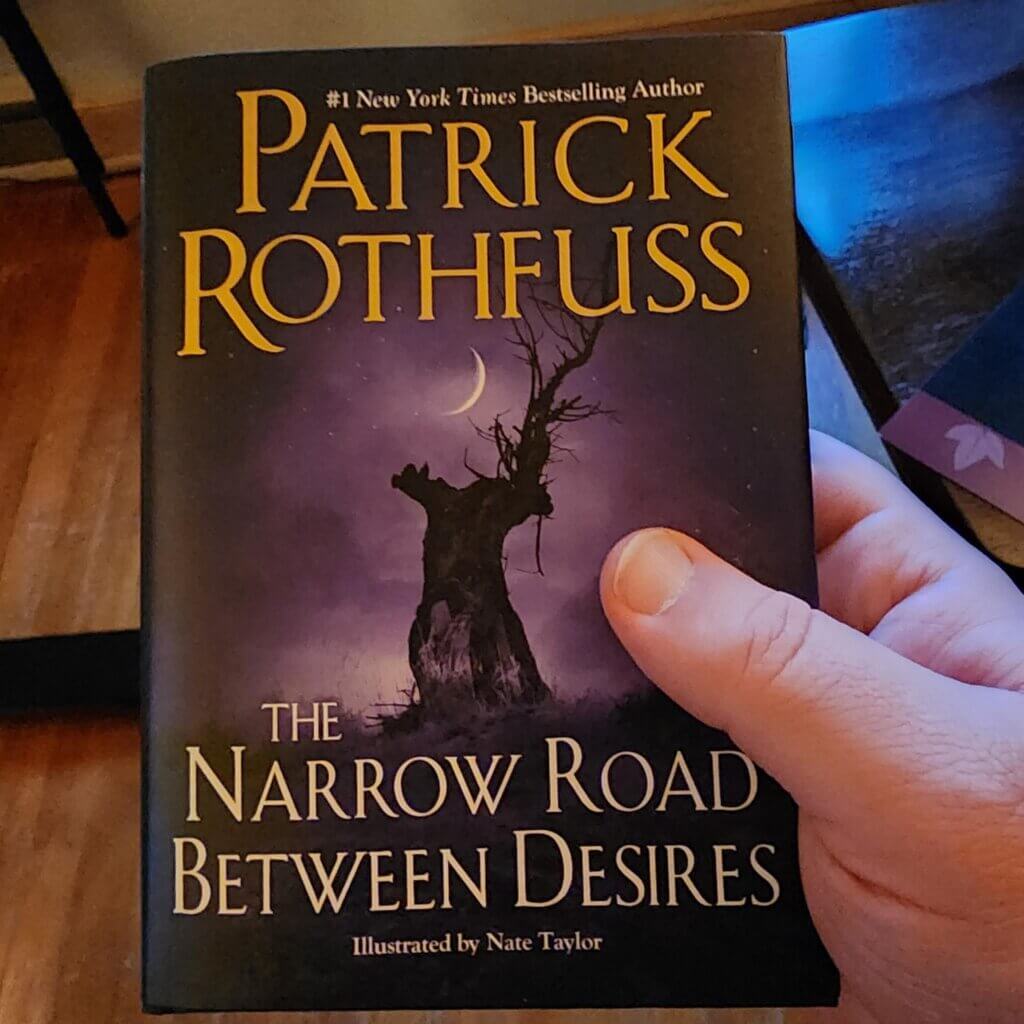
(This.)


